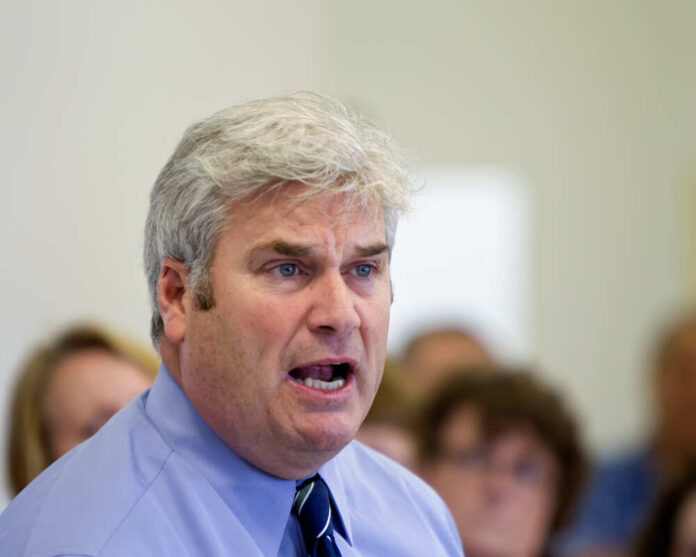
(PatriotNews.net) – GOP faces a critical decision on budget reconciliation: to pursue one comprehensive bill or split into two, heavily influenced by Trump’s preference.
At a Glance
- Republicans contemplate one large reconciliation bill or two smaller ones.
- Tom Emmer discusses potential strategies aligned with Trump’s decision.
- Key focuses include energy, immigration, defense, and bypassing the filibuster.
- Challenges include a tight majority and lack of experience among GOP members.
Strategizing Budget Reconciliation
House Majority Whip Rep. Tom Emmer appeared on Fox News Channel to outline the GOP’s budget reconciliation approach. The party faces a pivotal choice: gas large single measure or divide it into two packages. This strategic decision is heavily influenced by former President Trump’s preference.
If chosen, a single, overarching bill targets House passage by the end of March, aiming to land on the president’s desk by Memorial Day. Alternatively, two smaller bills could be completed with the first by February and the second by late May, subject to Senate cooperation.
Tom Emmer emphasized readiness to proceed with either strategy based on Trump’s directive, highlighting GOP preparedness. This approach would potentially streamline legislative goals related to energy, immigration, and defense, critical areas for Republicans. Emmer expressed confidence that the Senate’s timely action is essential for plan success.
House GOP Whip: We Can Get One Big Reconciliation Bill to Trump's Desk by Memorial Day https://t.co/muIcsMWblI
— Steve Ferguson (@lsferguson) January 4, 2025
Concerns and Experience Challenges
The Republicans plan to expand energy production and drill in the Arctic National Wildlife Refuge, considering the repeal of methane emission fees and potential changes to EPA tailpipe rules. Yet, internal differences and narrow majority heighten the complexity. Many current GOP members lack past reconciliation experience, complicating efforts. As Steve Scalise notes, 60% of January’s majority never participated in previous processes, presenting a significant learning curve.
“The biggest concern we have right now is 60 percent of our January majority was not here in 2017, when we did this last time. They don’t know what the reconciliation process is, most importantly the limitations of reconciliation.” – Steve Scalise.
Emmer assured that regardless of their decision, the GOP remains focused on capitalizing on the simple majorities allowed by reconciliation to bypass the expected Senate filibuster blockade. Democrats warn of fierce opposition, eyeing GOP attempts to repeal green tax credits and reverse climate efforts. Despite these challenges, Emmer stressed the importance of ready Senate action, indicating a timeline is less feasible without their cooperation.
Deadline Pressures and Political Ramifications
Republicans aim for decisive legislative wins to align with Trump’s guidance, a move set to heighten concerted efforts. As Emmer highlighted, Senate promptness is crucial; their responsive action determines feasibility. Expectations are tempered given the party’s fragmented stance on green initiatives and environmental policy, notably echoed by the Climate Action Campaign, urging defense of climate laws.
“If it’s one big bill, well, then the thought is, if that’s what the president decides to do, we could probably have that out of the House by the end of March, and if the Senate does its work, we could have that to the president’s desk by Memorial Day.” – Tom Emmer.
House GOP Whip: We Can Get One Big Reconciliation Bill to Trump’s Desk by Memorial Day
In summary, as Emmer and the GOP eye reconciliation strategy decisions, Trump’s input stands crucial, projected timelines hinge on Senate action, and inexperience looms as a challenge. Yet, Republicans stay poised to enact Trump’s preferred course, vying for legislative gains contrasting with Democratic stances.
Copyright 2025, PatriotNews.net
























